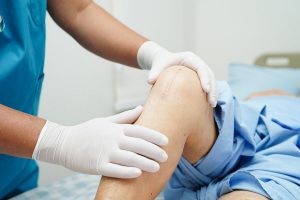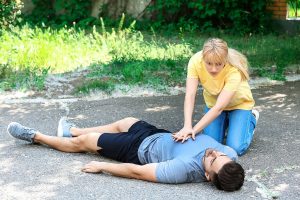Almost 60% of adult Americans said they took a walk over the past week for leisure, and maybe even some healthy exercise, a new federal tally finds.
Data from the 2022 National Health Interview Survey, a representative sampling of U.S. households, found that last year “58.7% of adults walked for leisure in the past 7 days,” although just who was walking and who stayed on the couch varied.
Gender made a difference: While 60.5% of women said they walked for leisure, that was true for 56.9% of men.
Younger Americans were more likely to perambulate for pleasure than older generations.
“The percentage of adults who walked for leisure decreased with increasing age, from 61.8% of adults ages 18-44 and 59.1% of adults ages 45-64 to 51.6% of adults age 65 and older,” say a team led by Dzifa Adjaye-Gbewonyo of the CDC National Center for Health Statistics.
Income seemed to matter: As incomes rose, the percentage of people who said they regularly walked for leisure climbed as well. For example, while more than two-thirds of people (67.2%) in the wealthiest tier did so, that fell to less than half (46.9%) for adults with family incomes below the federal poverty level, the report found.
Similar trends were seen with education, with the more highly educated walking for pleasure and exercise more often than less-educated adults.
By race, Asian Americans walked the most (63.8%), followed by whites (61.5%), Hispanics (53.5%) and Black Americans (49.2%), the survey found.
Of course, millions of Americans find themselves walking simply to get from point A to point B. The NCHS report found 16.2% of adults saying they walked “for transportation,” and unlike leisure walking, rates of transportation walking tended to rise as incomes fell.
“For many people, walking is considered a relatively easy and accessible physical activity for achieving health benefits,” the report’s authors wrote.
The American Heart Association agrees, noting on its website: “The simplest way to get moving and improve your health is to start walking. It’s free, easy and can be done just about anywhere, even in place.”
The AHA adds that “any amount of movement is better than none. And you can break it up into short bouts of activity throughout the day. Taking a brisk walk for five or ten minutes a few times a day will add up.”
More information
Find out more about walking’s health benefits at the Mayo Clinic.
SOURCES: NCHS Data Brief, July 31, 2024; American Heart Association
Copyright © 2025 HealthDay. All rights reserved.

























